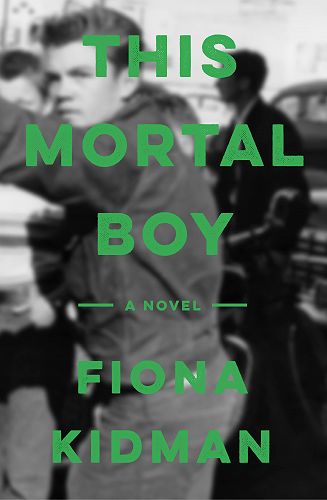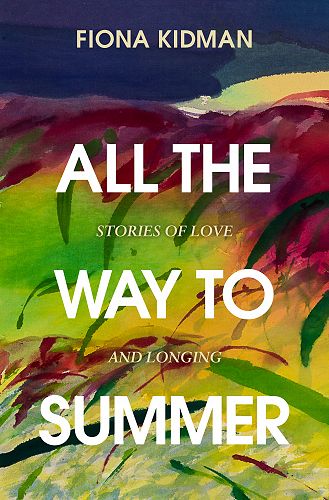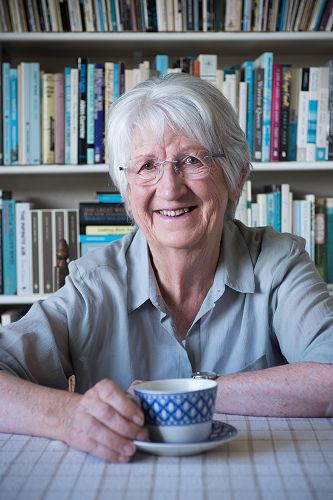
In Conversation: Dame Fiona Kidman DNZM OBE
Dame Fiona Kidman DNZM OBE will be the inaugural recipient of the University of Otago Centre for Irish and Scottish Studies Irish Writers Fellowship.
Dame Fiona Kidman DNZM OBE, who usually resides in Te Whanganui-a-Tara Wellington, is planning to be based at the University of Otago and residing on the Otago Peninsula during our southern spring when travel restrictions are lifted. Her most recent novel, This Mortal Boy, which recreates the events that led to the execution of Albert Black in 1955, won the 2019 Ockham New Zealand Book Awards Acorn Foundation Fiction Prize, the NZ Booklovers Award, the 2018 NZSA Heritage Book Award for Fiction and the 2019 Ngaio Marsh Award for Best Crime Novel. Originally writing plays for radio and television during the 1960s, Dame Fiona has gone on to publish, over the last five decades, not just award-winning novels, but several volumes of poetry and collections of short stories. Her latest collection of short stories, All the Way to Summer, which was published to mark her 80th birthday, won the 2020 NZSA Heritage Book Award for Fiction. Dame Fiona has also served as president of PEN NZ (now NZSA) and the New Zealand Book Council (now Read NZ Te Pou Muramura).

Jackie McMillan put some questions to Dame Fiona about her books and current projects, ahead of her visit to Dunedin.
Q: When did you start writing? And, did it take a long time before your first book was published?
A: I was one of those children who was absorbed in books and writing from an early age. An only child, I spent a couple of long periods in a country hospital when I was quite small. It was there I learned to read and write and begin my lifelong love of books and reading. During my teens I did lose sight of my early goals. It was the 1950s, the school I went to only went up to Form 5, so I left school when I was fifteen and had a variety of jobs. When I was 17, I went to work in the Rotorua Public Library and was mentored by a wonderful woman called Kit Spencer, the head librarian. She mentored me and educated my reading tastes. By the time I was twenty-two, I was married and pregnant with my first child; it was then I realised that my true course in life was writing. I began to write book reviews and articles, and to send stories away to magazines. I've never looked back. Throughout the 1960s and early '70s I wrote radio and television drama.
My first published book was actually poems, Honey & Bitters in 1975. My first novel was A Breed of Women in 1979.
Q: You have published novels, poetry, play scripts, memoirs and collections of short stories. Have you got a favourite genre?
A: The short story genre brought me early success and recognition as a writer. I still love it, but my approach to the form has changed over the years. The 'well-made' magazine format was dispensed with long ago. The stories of writers like Alice Munro interest me a lot, with their rolling narrative and explorations of the psyche in ordinary people's quiet lives. I see the short story as a constantly evolving form without formal boundaries and this is along the lines of how I write them.
Q: Do you start with an idea and then decide which genre would suit your idea?
A: Every form is different. When I have an idea, the form usually presents itself. I know that this is a poem or novel or what ever. But I confess that over the years I have started mining some of the early poems, in particular, for clues as to what I was thinking about, in broader terms, at that time of writing. I think every writer has a 'voice' that is particular to them and as one gets older there are certain themes and preoccupations that haunt one. There is some inevitability that early forms and themes will be revisited.
Q: Of all the characters you have created or written about (fictional or historical) which one would you most like to spend time with?
A: Oh. What an interesting question. I am very fond of a fictional character called Bethany Dixon who I have written about on and off over some fifty years. She appears in short stories and provided the title for my first published collection, Mrs Dixon & Friend. This story, in a refreshed version, appears in my last book All the Way to Summer. Bethany had a whole book to herself in a collection of linked stories called The House Within. What is special about Bethany? I suppose, if I'm honest, she is a kind of alter ego, the person I could have been if I had followed a different path in my life. I feel protective of her. Will I write about her again? Perhaps. If I do, I know she will be quite old - like me.

Q. Are there any particular writers that have influenced your work?
A: As mentioned, the Canadian writer Alice Munro has had a profound influence on my approach to writing short stories, freeing me up to experiment with the form. My librarian mentor, Kit, introduced me to French and Russian fiction writers when I was still in my late teens. Chekhov was among them. I learned a great deal about narrative storytelling from these writers. To some extent I have been influenced by the French writer Marguerite Duras, because there are a couple of similarities in our lives, including a connection with Vietnam. I'm interested in the sensual passionate voice she brought to her writing, a willingness to go down into the depths. I love the Irish writers but it would be too much to say I emulate them. I wish I could write like Anne Enright or Maggie O'Farrell.
Q. What were some of your other favourite books, or writers, when you were growing up?
A: Arthur Ransome, for the idea that kids could do anything. Noel Streatfeild, and the usual suspects. But there was a shortage of wide reading material for young people when I was growing up and I quickly acquired fairly adult reading habits. It is hard for me to reflect on boundaries between children's and adult writing. I admire many children and young adult authors, particularly in New Zealand where there are marvellous writers in the genre, but writing for young people is something I have never been able to do. One or two of my stories have been taken up for young adults, but that is by chance rather than design.
Q: What are you reading right now?
A: I recently finished Shuggie Bain by Douglas Stuart, a searing and raw account of a boy trying to support his alcoholic mother in the slums and mining areas of Glasgow. At first, I resisted the book, as too ugly in its content, but I was drawn in to the power of its storytelling. The novel won the 2020 Booker Prize and I can understand why. In the end it has a strange overwhelming beauty. I am just starting The Leaning Man, a novel by new writer Anne Harré of Wellington. It's crime noir and promises to be a thrilling read.
Q: You've been working on a new book, can you tell us a little about it?
A: My new book, planned for release early in 2022 is called So Far, For Now, a collection of autobiographical essays.
Q: What projects are you planning to work on during your residency in Dunedin?
A: The last essay in this collection, based on my time in Dunedin and living in the Caselberg Cottage at Broad Bay.
Q: Do you have a ritual you follow before you start your working day?
A: The rituals have changed in recent years. Breakfast used to be a special time for me and Ian, my late husband. We would talk, read the papers and he would take over the household management while I sat down to work between 9 am and 1 pm. Now I have a lot more things to attend to, but I still aim to be at my desk soon after nine.
Q: How has your writing been affected by the last year and lockdowns?
A: I didn't write much during lockdown. A lot of writers have said the same. It became a time for intense reflection. Perhaps, like everyone, our certainties were shattered and we have had to re-evaluate. The work has picked up again since then.
Q: What advice do you have for aspiring writers?
A: Believe in yourself. Tune out the naysayers and those who tell you, you can't do it. Which is not to say, don't listen to sound critical advice; it comes in very handy. Use strong verbs.
Gallery



